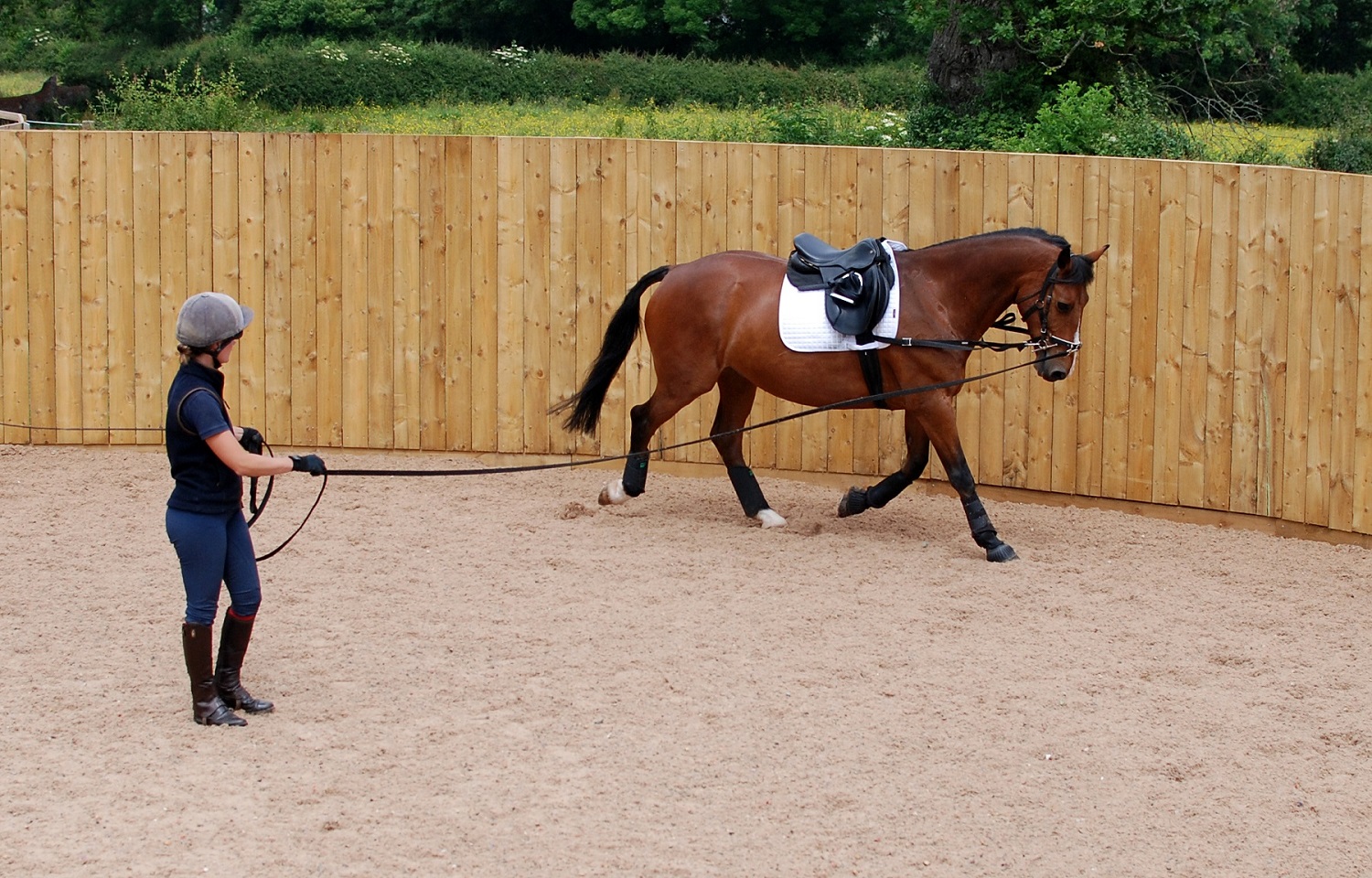BSc (Hons) Equine Science & Welfare Management

Course details
UCAS Code
D422
Year of entry
2024, 2025
Duration
3 YRS (FT) 5 YRS (PT)
UCAS Tariff
80-112
Institution Code
G53
Location
Northop
Why choose? this course?
The relationship between horse and human is increasingly seen as central to the equestrian industry’s development – and this degree is one of a very select number in the UK that focuses on this.
Based at our rural Northop Campus with practical content primarily delivered at Clwydian Stud, Overton-on-Dee, the degree builds on the university’s strong record of teaching in behavioural and equine science.
You will:
- benefit from partnerships with local businesses to help you develop industry-relevant skills and experience
- enjoy guest speakers and educational visits throughout the course
- get free training for British Horse Society examinations alongside the degree, together with £100 towards an equine vocational examination of choice
You can also choose to study this course with a foundation year BSc (Hons) Equine Science and Welfare Management including foundation year UCAS code: 758d
Key course features
- Free training alongside your degree and £100 towards the cost of British Horse Society qualifications
- Apply new and existing scientific principles to the management and training of horses, whilst embracing equine welfare
- Study at our rural Northop campus in the beautiful North Wales countryside, with practical learning at Clwydian Stud, Overton, both providing access to excellent equestrian facilities, as well as making use of the amenities at the Wrexham campus
- Get ahead in the job market by gaining industry experience from work placements, educational visits and guest speakers
What you will study
YEAR 1 (LEVEL 4)
During level 4 students will combine theory and practice. They will investigate equine behaviour and how horses learn. They will question the ethics of our industry and gain the practical skills necessary for their future career. Students will complete a work placement, and even at the start of their academic journey will be asked to focus on their career path.
MODULES
- Biological Concepts: This module aims to develop students’ understanding of the key principles of animal biology, biological pathogens, laboratory skills and anatomical structure and function. The origins and classification of life will be covered together with cell and tissue structure and function. The main organs and systems of the animals’ body will also be introduced.
- Stable Management (1): This module aims to ensure learners work safely and competently with horses. It covers the care and feeding of horses together with the selection and fit of tack and equipment. Preparation of horses for travelling and competition will also be included.
- Professional Practice: A range of career opportunities and associated challenges with gaining employment within the equine sector will be studied in this module. Students will also have the opportunity to develop their skills, knowledge and competencies within a workplace setting of their choice.
- Academic and Personal Development: This module aims to familiarise learners with the Higher Education culture, to build on key skills (logical, mathematical and critical) necessary for successful study in Higher Education.
- Ethics and Welfare: This module aims to investigate contemporary issues within equine and animal welfare and to introduce students to a range of relevant ethical issues. A variety of contemporary welfare issues will be critiqued during the module. Students will have the opportunity to deliver their own workshops and seminars.
- Equine Behaviour and Cognition: Students will investigate the link between environment and behavioural patterns of horses, and link equine cognition to management practices. Equine evolution, behavioural development, domestication and the effects of modern equestrian practices on the horse will be studied. Understanding of learning theories will also form a significant part of the module’s delivery.
YEAR 2 (LEVEL 5)
Level 5 provides students with the opportunity to build on earlier topics and to put learning into practice. The effects of management and training on the horse are investigated by studying anatomy, physiology and fitness. The equine diet is explored and equine learning is investigated. Academic skills are developed this year by starting the research process.
MODULES
- Anatomy and Physiology: This module aims to equip students with a working knowledge of topographical and skeletal anatomy and to enable them to identify anatomical landmarks. You will learn to relate anatomical structure to function and further develop your practical laboratory skills.
- Learning and Training: This module aims to reinforce the principles of learning theory as applied to equines, to link equine learning to training practices and evaluate traditional and contemporary equine training methods and equipment. Theoretical and practical delivery will cover topics including equine learning and intelligence, methods of training horses, and dealing with problems within equine training.
- Stable Management (2): This module builds on the stable management covered at level four, and includes the preparation of horses for varying disciplines, basic farriery equipment and hoof care and provides students with the opportunity to learn to lunge horses.
- Nutrition and Feeding Practice: This module will enable you to analyse the structure, role and value to the body of nutritional components of horse feed. You will learn how to critically analyse the composition of horse feed and the role of different feeds within the horse’s diet. You will also be taught how to calculate feed rations for horses of varying ages and for different levels of ‘work’.
- Research Methodologies: This module will enable you to understand the role of relevant research within the field of equine studies. In addition, it will provide you with sufficient capability to plan a research project in your field of study, define the research parameters, assess appropriate methodologies, and present your findings. You will learn how to examine and assess the appropriateness of different research methodologies to various research briefs and become aware of ethical and political issues in social research.
- Equine Health and Fitness: Students will assess equine conformation, health and disease in this module. Methods of getting horses fit and their physiological response to exercise will also be included. The module will be delivered through both theory and practice.
YEAR 3 (LEVEL 6)
The final year provides students with the opportunity to complete their own unique piece of research, enabling them to focus on a topic of choice. Equine reproduction and young stock management are concentrated on, together with methods of behaviour modification. Career development is also a central theme, and students are expected to complete additional professional development activities alongside their degree to enhance their chances of employment.
MODULES
- Equine Reproduction and Young-stock Management: Students will explore the anatomy and physiology of reproduction in the mare and stallion, and investigate the effect of modern reproductive techniques on reproductive success. Methods of handling and training young horses will also be included.
- Applied Research Skills and Professional Development: The module aims to equip students with the skills to evaluate research design critically as applicable to equine science and welfare management, to select and justify appropriate methods for data collection and analysis, and to reflect on personal development over the duration of the programme of study in preparation for future employment. Students will study the research process, and statistical analysis relevant to their field of study. They will also cover the use of the statistical package SPSS.
- Research Project: This module aims to ensure students can critically evaluate research and will guide students through the completion of a research-based study of a specialised area related to equine science and welfare management.
- Animal Behaviour Modification: The module aims to develop students’ awareness of the need for a systematic approach to understanding the aetiology of behavioural problems seen in horses. It will extend their understanding of how to analyse behavioural problems in horses and appreciate the limitations of relevant diagnostic techniques. It will also provide them with the opportunity to develop the necessary skills to suggest appropriate solutions to behavioural problems.
- Stress and Animal Welfare: The module enables students to explore how animal stress can be managed in a range of environments and situations. It also aims to provide students with an understanding of the physiological and behavioural adaptations of animals resulting from modern use and husbandry.
The information listed in this section is an overview of the academic content of the programme that will take the form of either core or option modules. Modules are designated as core or option in accordance with professional body requirements and internal academic framework review, so may be subject to change.
Entry requirements & applying
80-112 UCAS Tariff points at GCE A Level or equivalent. Appropriate AS Level and Level 3 Key Skills qualifications will also be taken into account. At least four GCSEs at grade C/4 (including English/Welsh (First Language) and Maths). An equestrian background is necessary.
The entry requirements are for general guidance. Alternative qualifications and experience are considered. All applications are considered on their individual merits.
Teaching & Assessment
Module delivery is achieved through a combination of theoretical lectures, seminar discussions, guest lectures, educational visits, and practical work. Between lectures students are expected to read around their subjects making use of the detailed reading lists published in Module Guides. Each module is assessed in a variety of ways.
Assessment includes academic essays, research posters, presentations, seminar discussions and practical assessment. The balance between the different forms of assessment is determined by the different aims and learning outcomes of the modules.
TEACHING AND LEARNING
Wrexham University is committed to supporting our students to maximise their academic potential.
We offer workshops and support sessions in areas such as academic writing, effective note-making and preparing for assignments. Students can book appointments with academic skills tutors dedicated to helping deal with the practicalities of university work. Our student support section has more information on the help available.
In terms of particular needs, the University’s Inclusion Services can provide appropriate guidance and support should any students require reasonable adjustments to be made because of a recognised prevailing disability, medical condition, or specific learning difference.
Career prospects
The degree will prepare you for a variety of careers including horse welfare and rehabilitation work, training horses, coaching riders or commercial equestrian yard management. You will also be prepared for employment in careers allied to the equine industry, for example research and consultancy work or postgraduate study. In addition to working in these areas previous students have also set up their own businesses.
Our Careers & Employability service is there to help you make decisions and plan the next steps towards a bright future. From finding work or further study to working out your interests, skills and aspirations, they can provide you with the expert information, advice and guidance you need.
Fees & funding
You do not have to pay your tuition fees upfront.
The fees you pay and the support available will depend on a number of different factors. Full information can be found on our fees & finance pages. You will also find information about what your fees include in the fee FAQs.
All fees are subject to any changes in government policy, view our undergraduate fees.
Programme specification
Accommodation
If you’re looking for a place to stay while you study then take a look at our accommodation pages to get more information on your options, including our on-campus halls of residence Wrexham Village.
International
If you are applying as an European / International Student, and live outside of the UK, you should make your application through our online application system, Centurus.
For information about the university’s entry requirements for EU/international students, please visit our international section.


